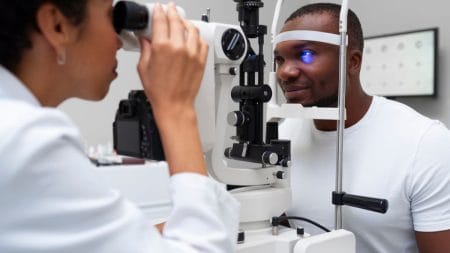When we think of police stations, the first thing that usually comes to mind is reporting crimes. While this is one of their primary roles, police stations actually offer a wide range of other important services that many people might not be aware of. Whether you need help in an emergency, support after a traumatic event, or assistance with legal processes, your local police station is a vital resource in your community.
In this article, we explore the many ways police stations in South Africa can assist you beyond just reporting crimes.
Emergency Assistance and Immediate Help
Police stations are the first point of contact for emergency situations. If you or someone else is in immediate danger—such as during an ongoing crime, a serious accident, or any life-threatening situation—the police will respond promptly to provide assistance and ensure safety. They coordinate with other emergency services like ambulances and firefighters to offer help quickly.
Filing Complaints and Guidance Through the Process
Sometimes, you may face situations that don’t involve urgent emergencies but still require official attention. Police stations help you file complaints about various issues such as harassment, noise disturbances, or neighbour disputes. They guide you through the complaint process to make sure your concerns are documented and handled appropriately.
Support for Victims of Crime
Being a victim of crime can be very traumatic. Police stations offer emotional support and connect victims to support groups or counseling services. These services help survivors of crime rebuild their lives and feel safer. Police also assist victims in understanding their rights and the legal processes involved in seeking justice.
Access to Legal Aid and Advice
Many police stations in South Africa work closely with legal aid organizations. If you need legal advice or assistance but cannot afford a lawyer, the police can help connect you to free or low-cost legal services. This ensures that everyone, regardless of income, can get help navigating the law.
Handling Traffic Violations and Accidents
Police stations handle all matters related to road safety. If you have been involved in a traffic accident, the police can assist you with reporting the incident and guiding you on the next steps, including how to exchange information and submit necessary documentation. They also deal with traffic violations, such as speeding or driving under the influence, to keep our roads safer.
Managing Lost and Found Property
Lost valuable items like phones, wallets, or identity documents can be distressing. Police stations often manage lost and found property. If you lose something, you can report it at your local station, and if someone finds it, they can hand it in. This service helps reunite people with their lost belongings.
Child Protection Services
Protecting children is a critical role of the police. If there are reports of child abuse or neglect, police investigate and work together with child protection agencies to ensure the safety and well-being of children in the community. Police stations also educate communities about child rights and protection measures.
Mental Health Support and Crisis Intervention
People experiencing mental health crises need urgent care and understanding. Police stations can act as connectors to mental health professionals and organizations that provide support. By linking individuals to the right resources, police help prevent crises from escalating and offer a path to recovery.
Community Outreach and Engagement
Police stations don’t just wait for incidents to happen—they actively engage with communities. They organise youth activities, crime prevention workshops, and neighbourhood watch programs to build safer, stronger communities. These initiatives encourage residents to work with police in preventing crime and improving public safety.
Police Clearance and Information Checks
Many employers or volunteer organisations require police clearance certificates or background checks. Police stations provide these official documents after conducting thorough checks, which help verify if someone has a criminal record. This service is essential for job applications, visa processing, and volunteer work.
Issuing Permits and Licenses
Certain permits and licenses, such as those related to security companies or alarm systems, are issued by police stations. If you plan to start a security business or install an alarm system at home, your local police can guide you through the legal requirements and issue the necessary documents.
General Information and Assistance
If you have questions about the law, how to stay safe, or police procedures, police stations can provide useful information. Officers can explain how laws work and what steps you should take in different situations, helping you make informed decisions.
Online Reporting and Hotlines
To make services more accessible, some police departments offer online reporting for minor incidents like lost property or vandalism. This saves you time and allows for easier communication. Additionally, crime tips hotlines encourage communities to report suspicious activities anonymously, assisting police in solving crimes.
Volunteer Programs and Community Safety
Many police stations have volunteer programs where community members can get involved in crime prevention and public safety initiatives. Volunteering helps bridge the gap between police and the public, building trust and cooperation to make neighbourhoods safer.
Check also: Police Won’t Open a Missing Persons Case? Here’s 9 Things to Do
Your local police station is more than just a place to report crimes. It is a hub of support, information, and community services designed to help you stay safe, get assistance, and improve your quality of life. Whether you need help in an emergency, want to understand your legal rights, or get involved in community safety, police stations are there for you.
If you ever feel unsure about what assistance is available, don’t hesitate to visit your nearest police station or call their contact number. The police serve the whole community, and their services extend far beyond crime reporting.










